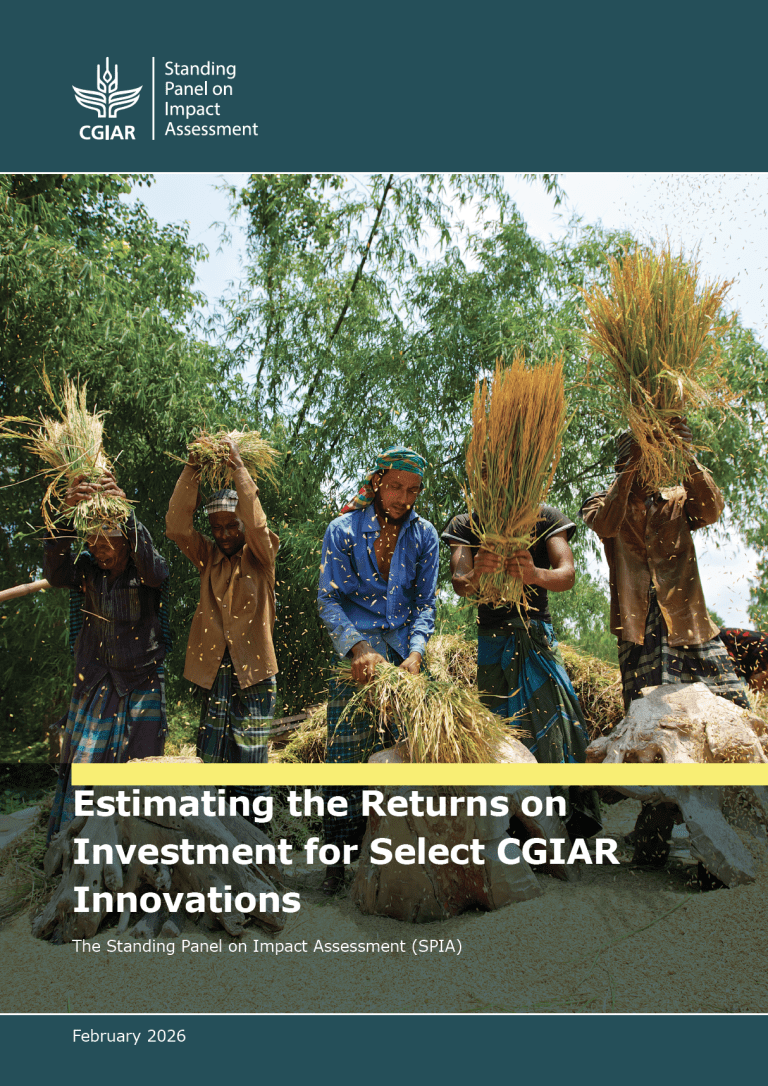On 28 August 2021 SPIA organized a session at the 31st International Conference of Agricultural Economists, which took place in a fully online format.
The CGIAR portfolio spans a wide spectrum of research, development, and policy engagement activities, involving a multitude of disciplines and approaches, and a large set of causal pathways, and possible outcomes. The commonality across this wide portfolio is that CGIAR aims to provide public goods, which potentially benefit many populations in different parts of the world. It is the global public good nature of CGIAR activities that provides the theoretical rationale for support of the system. Yet evidence for the large-scale impact of more recent investments in CGIAR is scarcer and maintaining confidence in the system requires an updated approach to impact evidence. This session presents an integrated approach to document reach and impacts of agricultural research for development that is being implemented by the CGIAR Standing Panel of Impact Assessment (SPIA). The session starts with an overview of the different components of the SPIA methodological approach that focuses on the two areas of accountability and scale, as well as learning studies and decisions to scale. Then the session brings three presentations from different research projects.
Michael Kremer, 2019 Nobel Laureate, presents a portfolio-level approach to assessing the return on development innovation funds, which support social science R&D.
Paola Mallia and Solomon Alemu present a country level approach being implemented in Ethiopia to track the diffusion of agricultural innovations in places where international agricultural research has concentrated efforts.
Finally, Nathaniel Jensen discusses how to measure long-term, large-scale impacts of agricultural innovations focusing on the experience of Index Based Livestock Insurance in Kenya.



